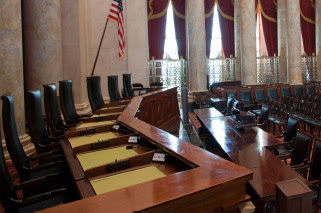A Brief Note On Justiciability
Several of this blogs most faithful supporters suggested that I do a post on justiciability, having just referenced that concept in the last post about the emoluments cases. It is both an abstract and a very real concept. I'll try to focus on the real world application of the term, the one that will show up in legal memorandums and judicial opinions. A word about legal terminology in general. Legal terms are capable of being defined yet are constantly being interpreted. They have a core meaning yet there is a fuzzy area surrounding them where the interpretations take hold. Also, there are the exceptions to that core meaning which need to be understood to grasp the entire concept of that term, and also related terms that affect the meaning of the term itself. For example, take the term "moot" or "mootness". Legal actions cannot be brought or continued after a matter has been resolved, leaving no live case for a court to deal wi...

